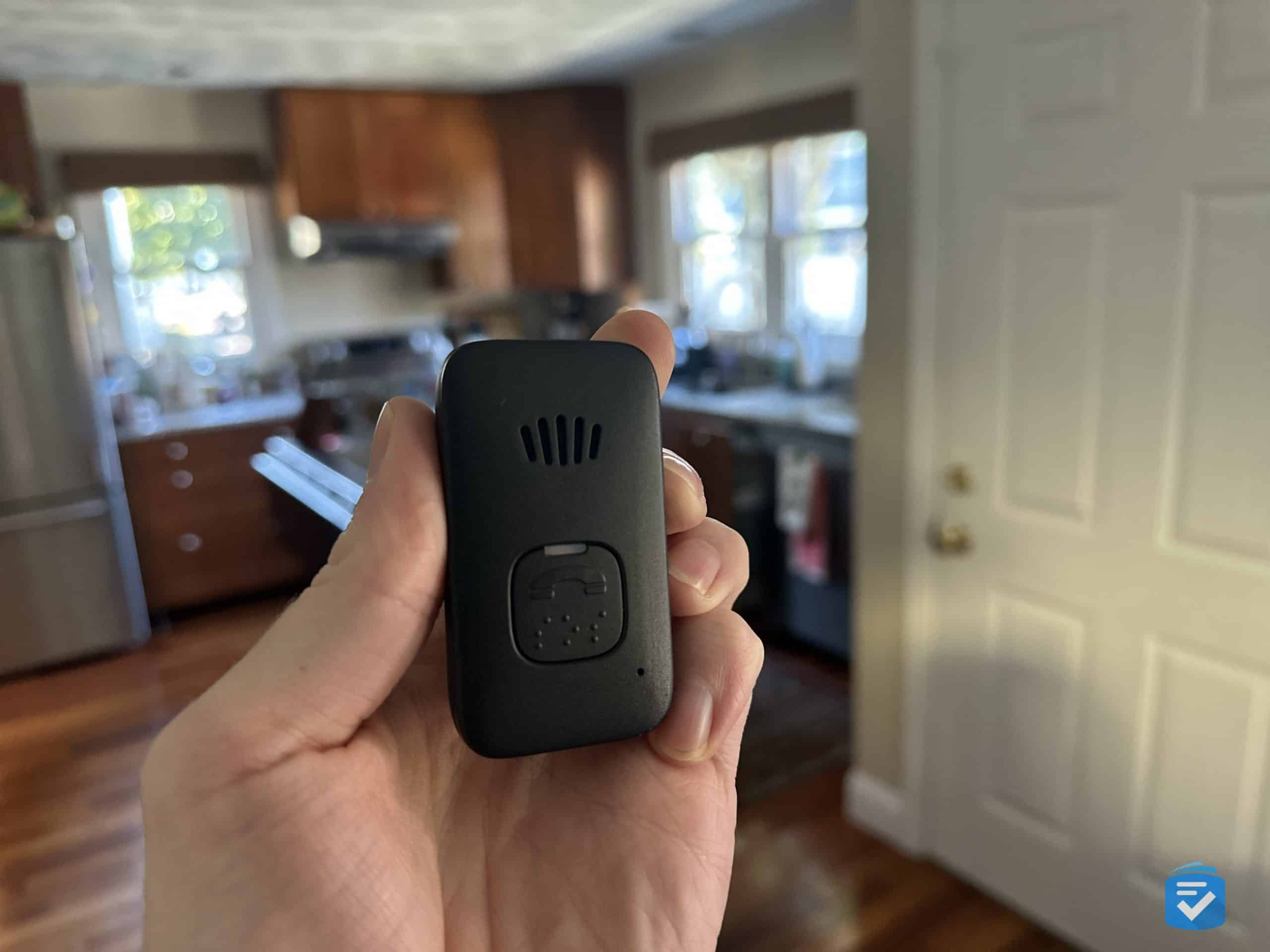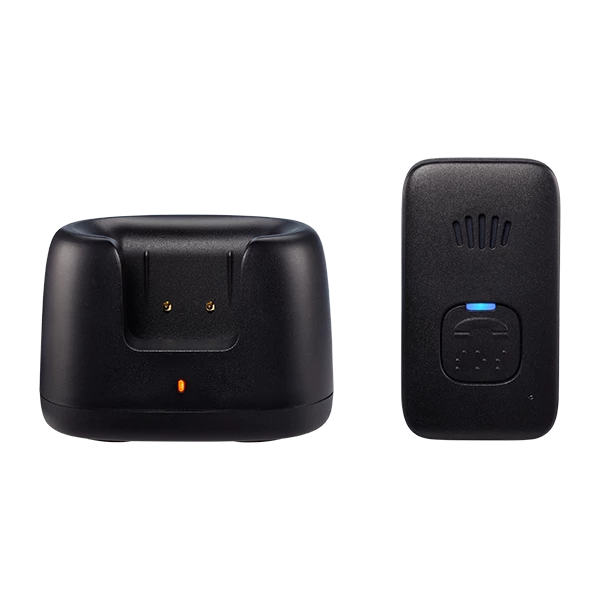
Consumer Cellular Iris Ally Review

Iris Ally: Key Findings
- In our 10 test calls, the Iris Ally connected us to help in an average of 10 seconds — faster than a majority of medical alert devices.
- The Iris Ally costs $25 per month (fall detection included), making it more affordable than other mobile medical alert systems.
- While it does have a built-in GPS, the Iris Ally does not have a caregiver app that allows tracking a system’s location and alerts.
Pro Tip: Ten seconds is fast, but it’s not the fastest time we’ve experienced. To find out which medical alert systems gave us the fastest response times, read our rundown of this year’s best medical alert systems.
Why Trust Us?
Our team of caregivers, experts, and health-care professionals conducted over 5,000 hours of in-depth research and testing. The results helped us recommend the most reliable brands and devices. In this process, our team:
- Tested 50 medical alert devices from 15 different brands.
- Surveyed 1,250 seniors and caregivers on medical alert system usage.
- Consulted with nurses, EMTs, and caregivers who are experts at caring for older adults.
- Published dozens of videos that demonstrate our medical alert system testing.
- Evaluated verified customer reviews of medical alert companies from the Better Business Bureau.
- Continues to monitor developments in the world of medical alert systems and revises our findings accordingly.
How We Tested the Iris Ally
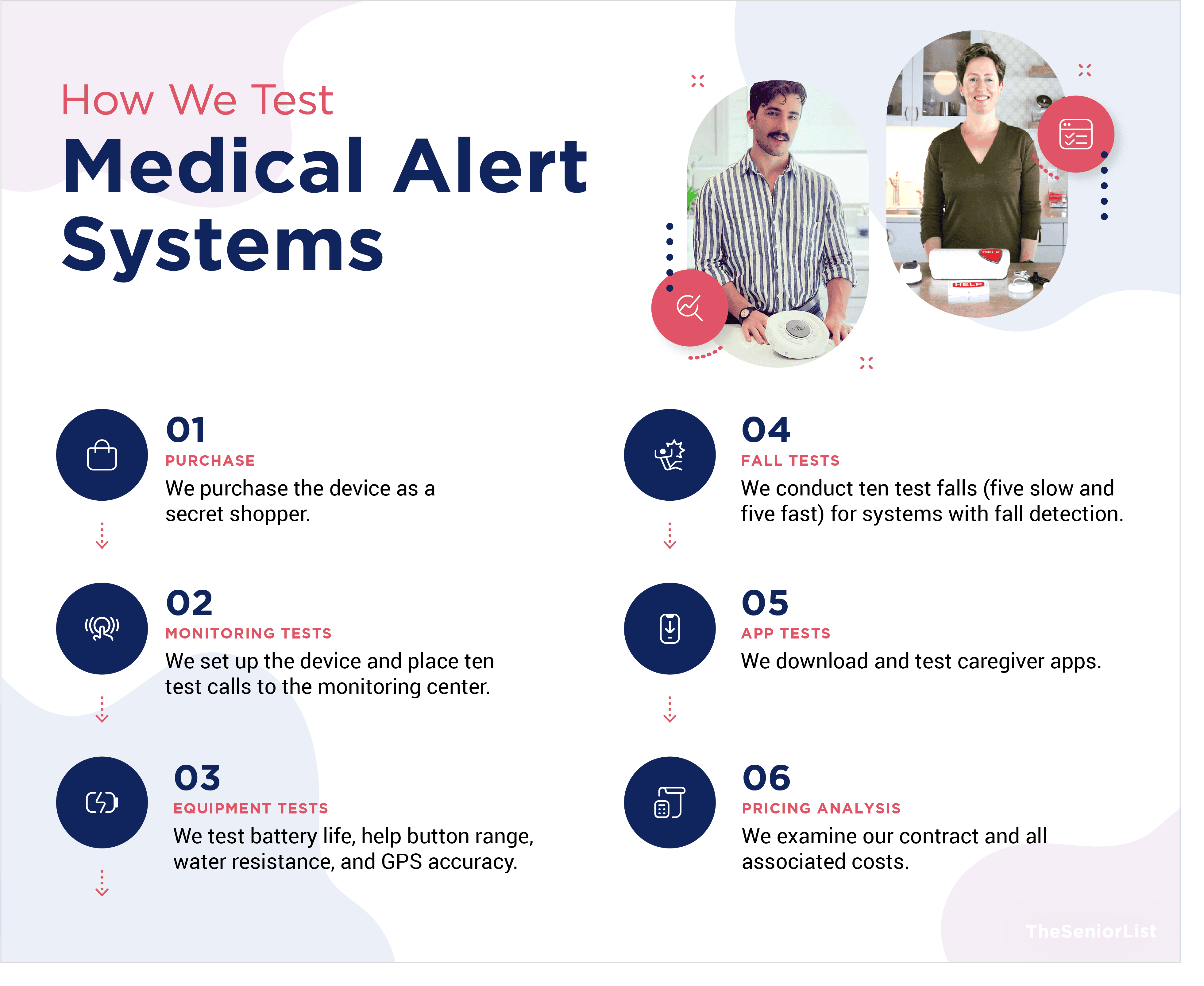
In creating this Iris Ally review, we evaluated the device on the following criteria:
- Response times: We placed 10 test calls with the Iris Ally and calculated the average response time.
- Ease of use: Through testing and design analysis, we ensured the device was easy to use, particularly for those with visual impairments and manual dexterity issues.
- Customer care: We conducted extensive interactions with Consumer Cellular’s customer care teams and monitoring agents to ensure they offered adequate support.
- Affordable pricing: We analyzed the costs of the Iris Ally and compared them to similar systems from other companies.
- Flexible contracts: We read the fine print of our Iris Ally service agreement, ensuring there were no unexpected fees or obligations.
- Extra features: Apart from conducting test calls, we also tested the Iris Ally’s fall detection, water resistance, and GPS capabilities.
Iris Ally Pros and Cons
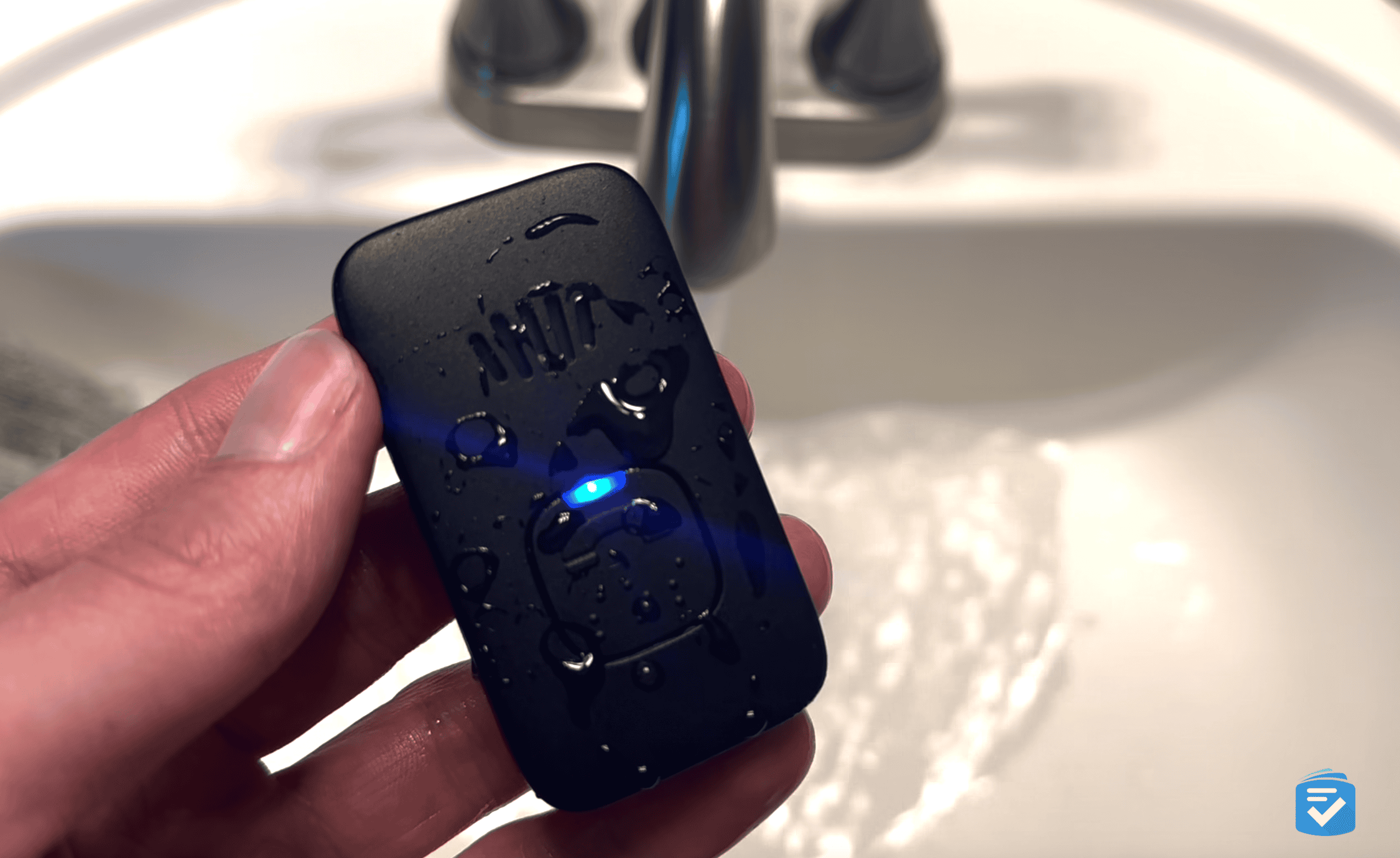
What We Liked About Iris Ally
- Quick response times: Averaging 10 seconds in our test calls, the Iris Ally has some of the fastest response times of any medical alert system.
- Long battery life: The Iris Ally lasted three days on a single charge.
- Accurate GPS: In each of our test calls, response agents were able to accurately report our location.
- Highly affordable: Costing $25 per month (fall detection included), the Iris Ally is one of the most affordable medical alert systems.
What We Didn’t Like About Iris Ally
- No caregiver features: Unlike the mobile systems from Medical Guardian, the Iris Ally does not support any type of caregiver portal that allows you to track a loved one’s system.
- No Wi-Fi connectivity: While we experienced no issues obtaining an adequate cellular signal, those in rural areas might want to consider a medical alert with Wi-Fi connectivity, like the Kanega Watch.
Did You Know: Consumer Cellular also offers highly affordable cellular plans. To read about my experience with this company, read my Consumer Cellular review.
Iris Ally Video Review
Iris Ally Specs
| Size | W: 1.5″ H: 2.5″ D: 0.62″ |
| Battery Life | 72 hours |
| Fall Detection | Included |
| Cellular Connection | 4G LTE |
| GPS | Yes |
| Caregiver Portal | Not available |
| Health Monitoring | Not available |
Testing the Iris Ally
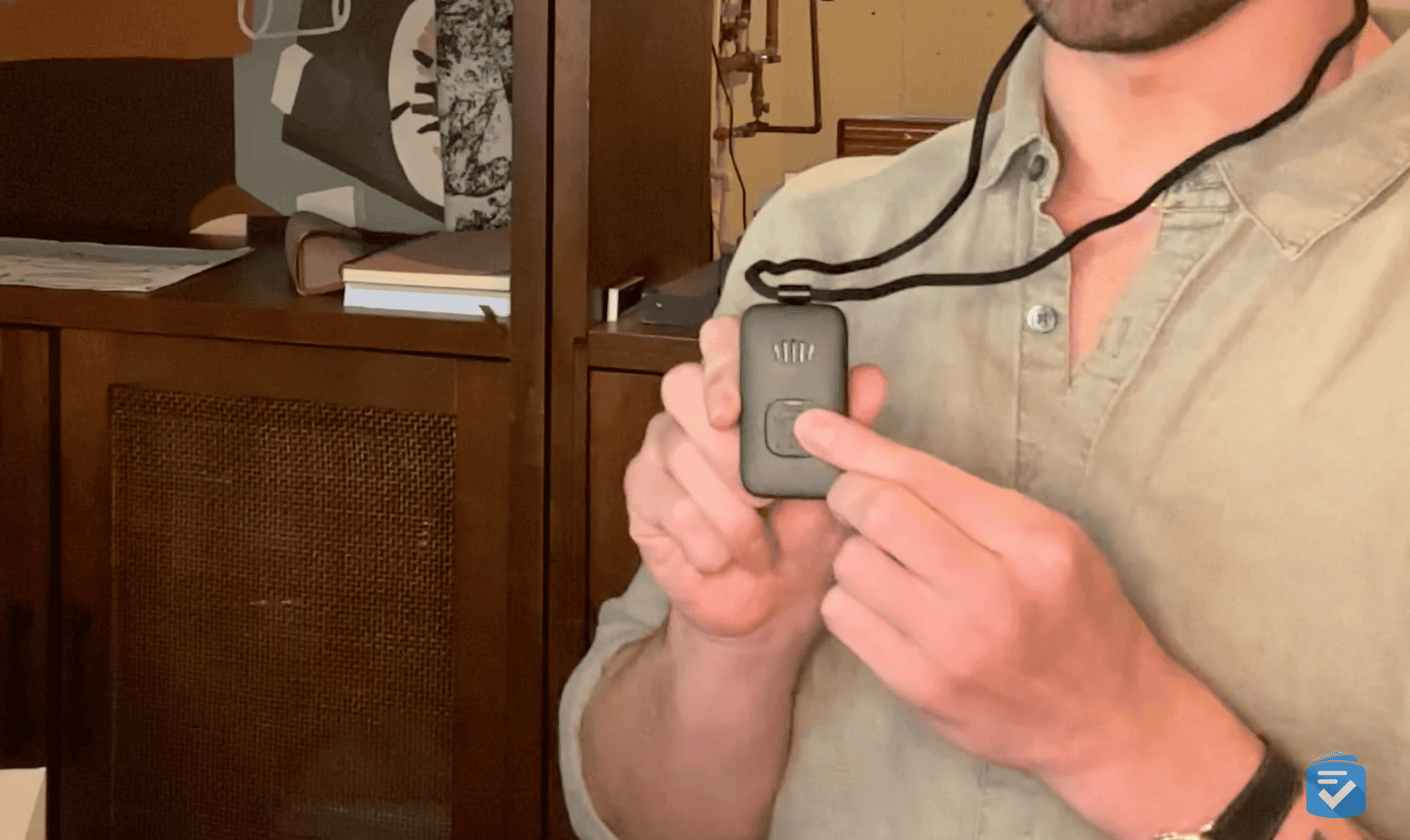
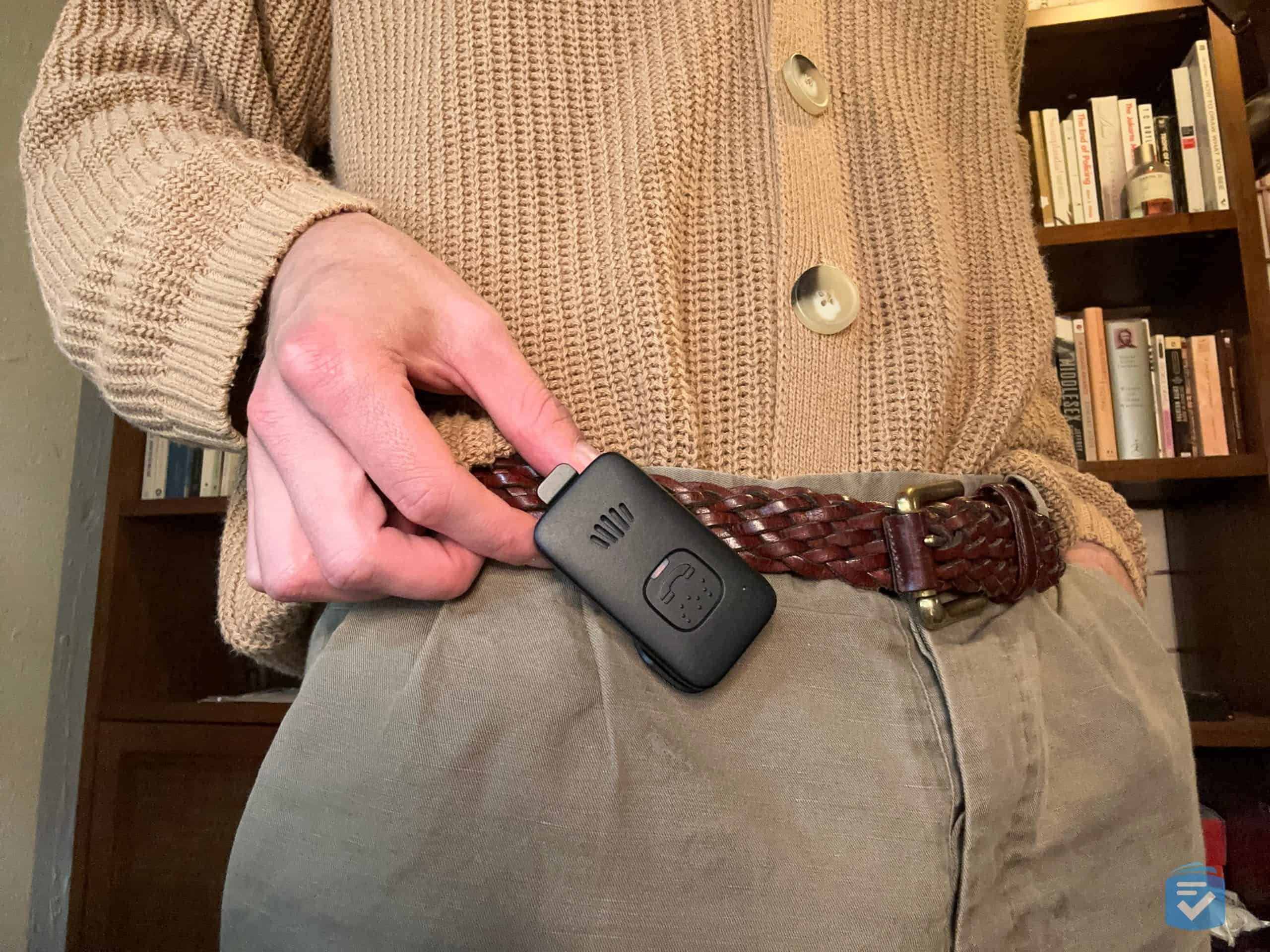
Unboxing
After receiving my Iris Ally in the mail, I unpacked the device and found the following:
- 1 Iris Ally mobile unit
- 1 lanyard attachment
- 1 belt clip attachment
- 1 charging cradle
- 1 instruction manual
Unlike other medical alert systems, which require additional pendants for fall detection, the Iris Ally has this feature built in. I appreciated how this kept equipment to a minimum.
Installation
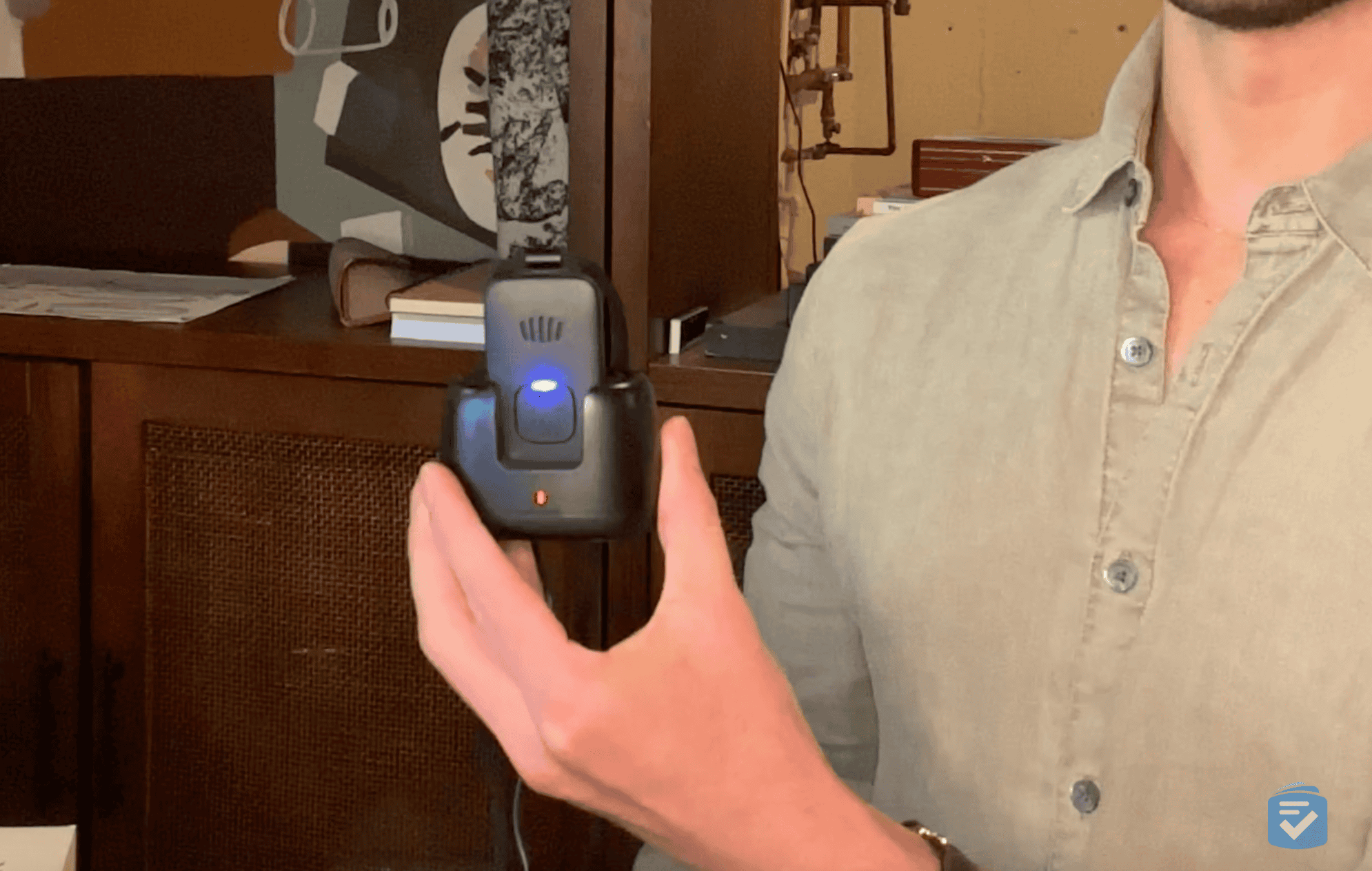
Setting up the Iris Ally was incredibly quick and easy. The device comes pre-programmed with a Consumer Cellular SIM card. So, all I had to do was place the device in the charging cradle and wait for it to power on. During this time, I attached the lanyard to the mobile unit.
Once the device was charged, I pressed its help button to trigger my first test call. Quickly, an agent picked up the call and confirmed that my device was working properly.
Performance
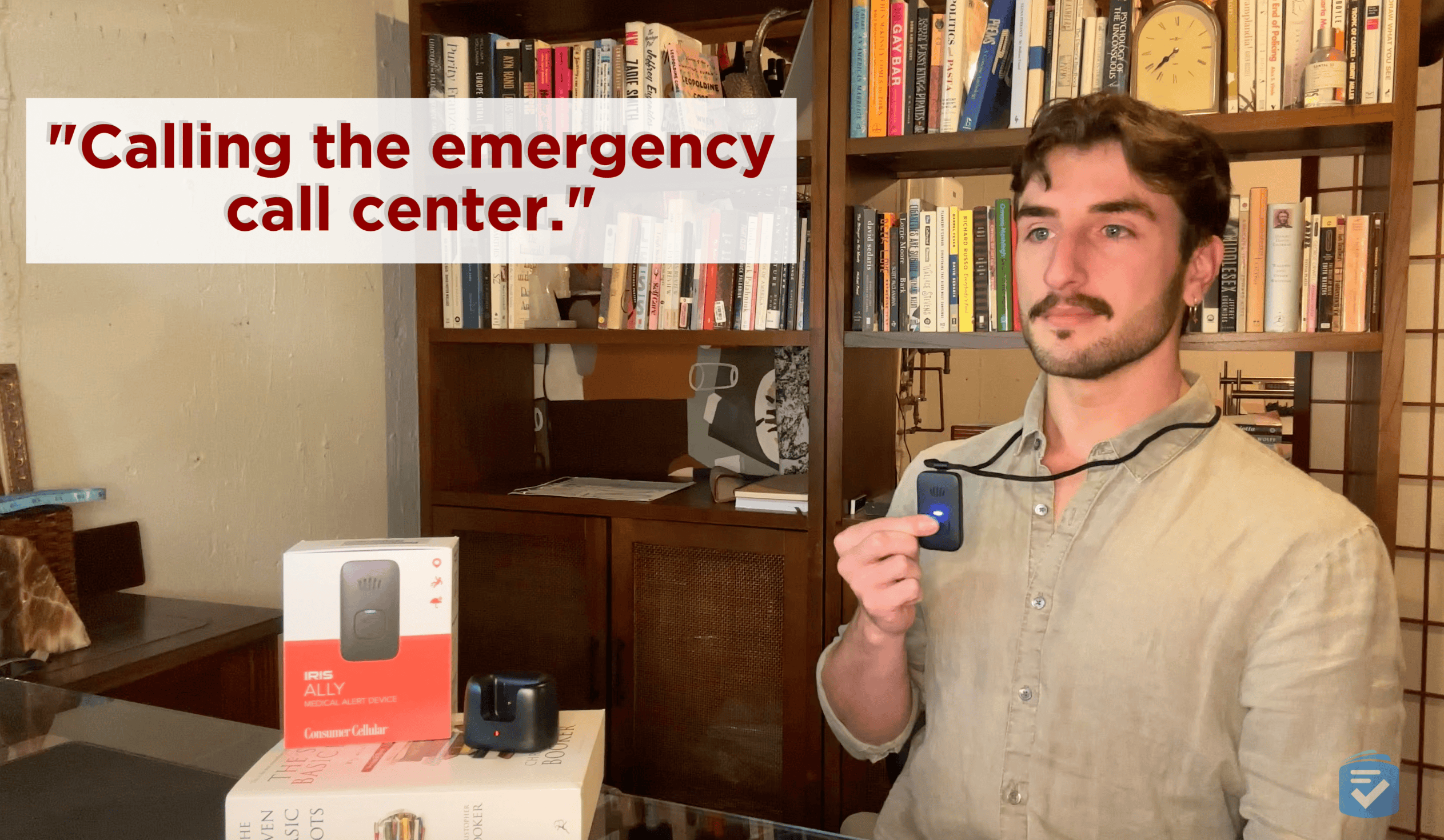
With my system charged, I placed a series of 10 test calls, five in my home and five around my neighborhood. Each time my call was answered promptly; the calls averaged 10 seconds from button-press to when an agent picked up the phone.
On each call, the agent verified that I was just testing my system and did not need help. Then, to end the call, the agent asked me to confirm my name, birthday, and address.

Regarding my outside-the-home test calls, I asked agents to confirm my location. Each time, the agent was able to report my location down to the cross streets. This would be useful in the event of an out-and-about emergency, in which case the agent could direct EMS to the proper place.
Overall, I was pleased with how the device performed. It was small enough to be comfortable to wear. Plus, I found that the speaker was loud enough to carry out calls, even when I was outside in windy conditions.
Fall Detection
While most companies charge extra for fall detection, the Iris Ally includes this feature at no extra cost. In my series of test falls, I found that this device detected 4 out of 5 fast falls and 2 out of 5 slow falls.
In my week of using the device, it also only triggered two false alarms. However, these were easy to disarm by pressing the help button. So, while this is not the most accurate fall detection device I’ve tested — that honor would go to the MGMini Lite — I’d say it’s better than average.
Caregiver Features
The one disappointing aspect of the Iris Ally would be its lack of caregiver features. Mobile systems from Bay Alarm Medical allow the tracking of a system’s power, cellular status, and location — as well as receiving alerts when an emergency call is placed. The Iris Ally, however, has no support for such features.
If you want a medical alert system with ample features for caregivers, then I’d recommend checking out my Lively Mobile2 review.
Iris Ally Pricing
The Iris Ally costs a one-time $89 payment and a monthly fee of $25. The $89 covers the cost of the device itself, and the $25 covers your service. While most medical alert companies charge an extra monthly fee for fall detection, the Iris Ally, as mentioned above, includes this in the monthly charge. Additionally, the Iris Ally requires no long-term contracts. When I finished testing my system, I returned it to Consumer Cellular and stopped making monthly payments.
As of the time this was written, the Iris Ally is the most affordable mobile medical alert system on the market. The only comparable device is the Lively Mobile2, which costs $24.99 per month. However, fall detection costs an extra $10 per month. Compared to Medical Guardian’s mobile systems, which cost at least $39.95 per month, the Iris Ally is a veritable bargain.
Compare Consumer Cellular to Other Brands
Final Thoughts
Affordable, intuitive, and capable of lightning-fast response times, the Iris Ally is one of the best mobile medical alerts I’ve tested. The only major flaw I see in the device is its lack of a caregiver app. If this feature is important to you, I recommend the Lively Mobile2 or the SOS Mobile from Bay Alarm Medical. If, however, a caregiver app is not a necessity, then the Iris Ally is definitely a great option.
Frequently Asked Questions
-
How much does the Iris Ally cost?
The Iris Ally costs $89 upfront and a monthly payment of $25. Unlike other medical alert systems, there is no extra charge for fall detection.
-
How long is the Iris Ally’s battery life?
In our tests, the Iris Ally lasted three days on a single charge. However, this battery life may vary based on usage.
-
Does the Iris Ally have features for caregivers?
The Iris Ally does not currently support any app, portal, or tracking features for caregivers.
-
Do I need a Consumer Cellular plan to use the Iris Ally?
You do not need to purchase a separate Consumer Cellular plan to use the Iris Ally. Your monthly $25 covers the device’s cellular service.


